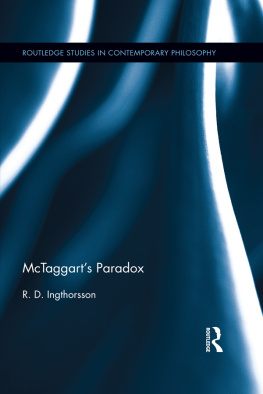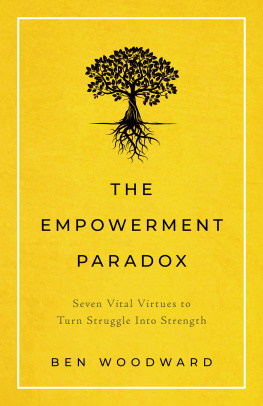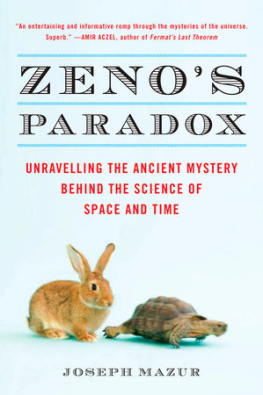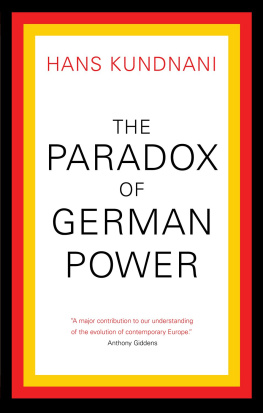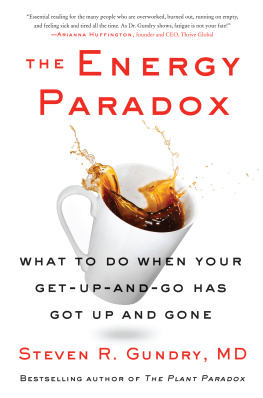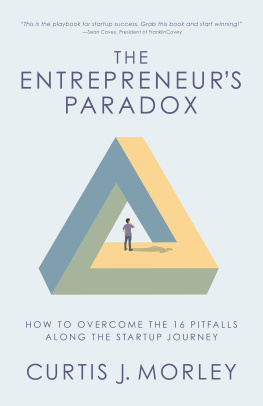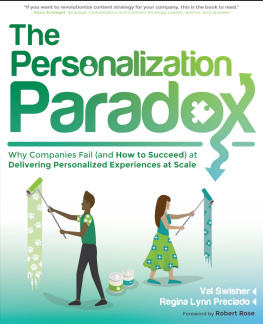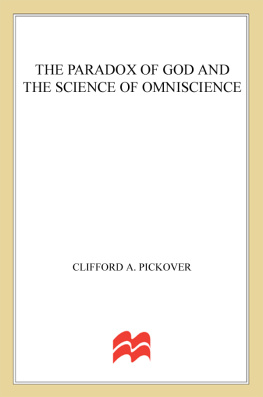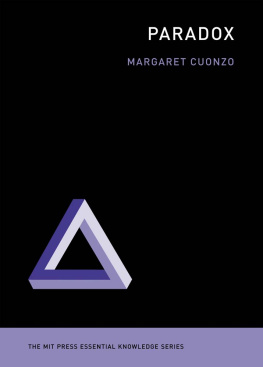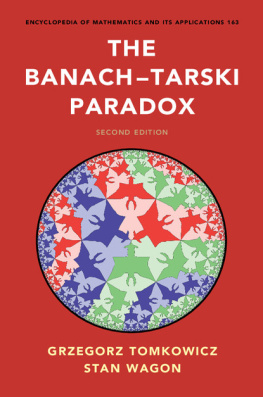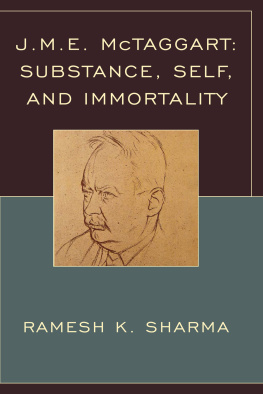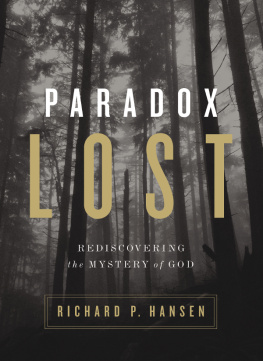Ingthorsson Rögnvaldur D. - McTaggarts Paradox
Here you can read online Ingthorsson Rögnvaldur D. - McTaggarts Paradox full text of the book (entire story) in english for free. Download pdf and epub, get meaning, cover and reviews about this ebook. City: New York, year: 2016, publisher: Routledge, genre: Computer. Description of the work, (preface) as well as reviews are available. Best literature library LitArk.com created for fans of good reading and offers a wide selection of genres:
Romance novel
Science fiction
Adventure
Detective
Science
History
Home and family
Prose
Art
Politics
Computer
Non-fiction
Religion
Business
Children
Humor
Choose a favorite category and find really read worthwhile books. Enjoy immersion in the world of imagination, feel the emotions of the characters or learn something new for yourself, make an fascinating discovery.
- Book:McTaggarts Paradox
- Author:
- Publisher:Routledge
- Genre:
- Year:2016
- City:New York
- Rating:4 / 5
- Favourites:Add to favourites
- Your mark:
- 80
- 1
- 2
- 3
- 4
- 5
McTaggarts Paradox: summary, description and annotation
We offer to read an annotation, description, summary or preface (depends on what the author of the book "McTaggarts Paradox" wrote himself). If you haven't found the necessary information about the book — write in the comments, we will try to find it.
McTaggarts Paradox — read online for free the complete book (whole text) full work
Below is the text of the book, divided by pages. System saving the place of the last page read, allows you to conveniently read the book "McTaggarts Paradox" online for free, without having to search again every time where you left off. Put a bookmark, and you can go to the page where you finished reading at any time.
Font size:
Interval:
Bookmark:
First published 2016
by Routledge
711 Third Avenue, New York, NY 10017
and by Routledge
2 Park Square, Milton Park, Abingdon, Oxon OX14 4RN
Routledge is an imprint of the Taylor & Francis Group, an informa business
2016 Taylor & Francis
The right of R. D. Ingthorsson to be identified as author of this work has been asserted by him/her in accordance with sections 77 and 78 of the Copyright, Designs and Patents Act 1988.
All rights reserved. No part of this book may be reprinted or reproduced or utilised in any form or by any electronic, mechanical, or other means, now known or hereafter invented, including photocopying and recording, or in any information storage or retrieval system, without permission in writing from the publishers.
Trademark notice: Product or corporate names may be trademarks or registered trademarks, and are used only for identification and explanation without intent to infringe.
Library of Congress Cataloging-in-Publication Data
Names: Ingthorsson, Rognvaldur D., author.
Title: McTaggarts paradox / by R.D. Ingthorsson.
Description: 1 [edition]. | New York : Routledge, 2016. |
Series: Routledge studies in contemporary philosophy ; 84 |
Includes bibliographical references and index.
Identifiers: LCCN 2016006270 | ISBN 9781138677241
(hardback : alk. paper)
Subjects: LCSH: McTaggart, John McTaggart Ellis,
18661925. | Time.
Classification: LCC B1647.M154 I54 2016 | DDC 115.092dc23
LC record available at http://lccn.loc.gov/2016006270
ISBN: 978-1-138-67724-1 (hbk)
ISBN: 978-1-315-55963-6 (ebk)
Typeset in Sabon
by Apex CoVantage, LLC

The writing of this book was made possible by a grant from the Swedish Research Council , which allowed me three years of nearly full-time study of everything ever written in English about McTaggarts infamous argument for the unreality of time. Well, I say everything, but in reality I can claim only to have read everything one can hope to find with a reasonable effort, given how poorly indexed philosophical literature is. I have searched with all the search engines I could think of, with the broadest search terms that make any sense at all, and manually searched through the references of every work I came across. Still, I strongly suspect I didnt find everything.
This is not the first time I address McTaggarts argument for the unreality of time. Indeed, the argument has been on my mind for nearly 20 years. It was the first focal point of my Ph.D. project and resulted in the publication of two journal articles (Ingthorsson 1998, 2001), which later became of my thesis (Ingthorsson 2002 b ). I have presented my views on McTaggart at the Wittgenstein Symposium (Ingthorsson 1999) and at various conferences and research seminars around the world: Gothenburg in 2001, Durham in 2008, Reykjavk in 2008, Lund in 2012, and Istanbul in 2013.
As a Ph.D., I focused on McTaggarts own writings, mainly because I found the secondary literature on the argument to be conflicting beyond intelligibility, both with respect to each other and with my understanding of McTaggart. In other words, I felt a growing understanding of McTaggarts philosophy and the argument for the unreality of time, but not of the literature provoked by his argument. Fourteen years later, I was beginning to glimpse an understanding for the secondary literature, similar to the one I previously felt about McTaggart. I then devised a plan about how to approach the literature in order to sort out the remaining questions I was still struggling with. This plan was received well by the Swedish Research Council , which awarded me the funds to carry it through. For this I am exceedingly grateful.
The method applied in this project merits a brief comment because it is not often applied in philosophy, as far as I can tell, and it is relevant for the validity of the conclusions reached in this book. The inspiration for this plan grew out of my work as a lecturer in research methods in the social and health sciences and out of an encounter with the work-process used in systematic reviewing in the health sciences within the Cochrane collaboration (Higgins & Green 2011).
Obviously, the method used in this project is only inspired by the Cochrane method, because, for one thing, philosophy doesnt deal with numeric data generated by objective tools of measurement in randomized controlled studies with a double-blind research design; nor can the results of philosophical investigations be standardized and compiled for statistical meta-analysis. What I found inspiring is the way in which the review process starts with the construction of a detailed protocol in which it is specified in advance which research questions one is looking to answer, what counts as relevant literature, how to go about finding all relevant literature, as well as how one is going to extract the relevant answers to the research question and analyse them.
My own adaptation of this process was to treat my earlier study of McTaggart, and of that limited sample of literature that I scrutinised then, as a pilot study whose results provided a base for the construction of a research protocol, which I would use to scrutinise what I earlier left out. The research grant proposal submitted to the Swedish Research Council was then based on that protocol, specifying and explaining the initial research questions, and how I meant to go about answering them.
Once the grant was awarded, the first step was to compile a list of everything ever written in English about McTaggarts argument for the unreality of time. I searched with the help of various indexes and search engines such as Philosophers Index, JStor, Web of Science, Search Elite, and Google Scholar. It quickly became evident that philosophical literature is poorly indexed. For instance, searches using specific terms such as McTaggart or unreality of time fail to find monographs in which McTaggarts argument is a subject. They might perhaps be indexed as philosophy of time, but so is every other book on the subject of time that never mentions McTaggart. Even using the term philosophy will exclude relevant hits, because not all philosophical literature is indexed as philosophy. In the end I simply searched for McTaggart, and Time on every search engine I could think of and then manually skimmed through the approximately 11.000 hits to exclude the obviously irrelevant. I further reduced the number of relevant hits by reading abstracts and then ended with around 850 journal articles, books, and book reviews.
Going through the list in chronological order, I first searched for items available electronically. For those not available in that way, e.g. all the monographs, I sought to identify where I could find them. Living in Oxford, with the Bodleian Library at hand, was a gift.
The next step was to construct a matrix that allowed me to categorise each item on the list as relevant, peripheral, or irrelevant, as well as to further categorise relevant and peripheral papers according to which research questions they provided answers to. Items categorised as irrelevant were those that did not contain a discussion of either the time argument or any issue related to it (say, the endurance/perdurance controversy or the reduction of tensed sentences to tenseless ones). An item counted as a discussion if it contained discernible arguments about some part of the argument or issue related to it, as opposed to merely mentioned the argument, or stated an opinion on it, or on related subjects, without attempting to justify it. Readings were categorised as peripheral if they did not explicitly discuss the time argument, but did discuss issues related to it, in the sense of discuss outlined earlier. Readings counted as relevant were those that explicitly discussed the time argument.
Font size:
Interval:
Bookmark:
Similar books «McTaggarts Paradox»
Look at similar books to McTaggarts Paradox. We have selected literature similar in name and meaning in the hope of providing readers with more options to find new, interesting, not yet read works.
Discussion, reviews of the book McTaggarts Paradox and just readers' own opinions. Leave your comments, write what you think about the work, its meaning or the main characters. Specify what exactly you liked and what you didn't like, and why you think so.

